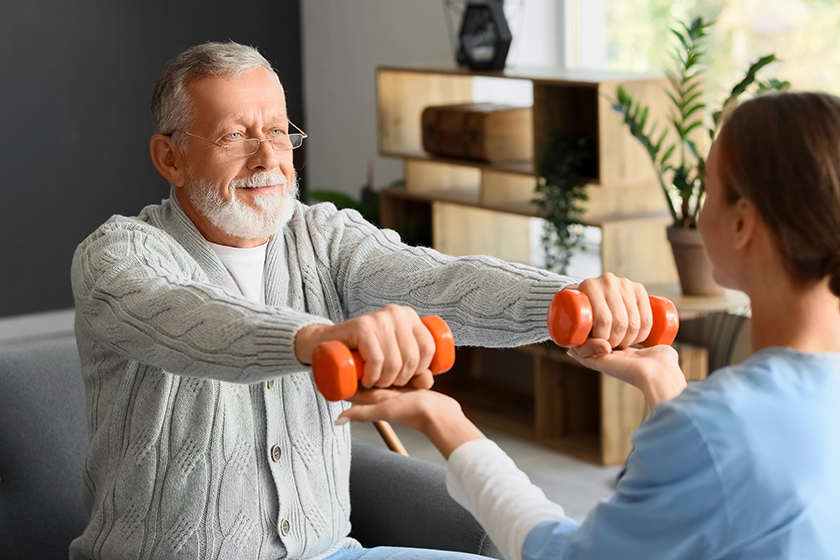When managing early-stage Parkinson’s disease, establishing a consistent exercise routine can be life-changing. Regular physical activity not only supports better mobility and balance but also helps enhance mood and energy levels, which can often be affected by Parkinson’s. If you’re living with this condition, incorporating targeted exercises for early-stage Parkinson’s disease can foster physical resilience and a renewed sense of confidence.
At our retirement community, we understand the importance of providing supportive environments that encourage residents to maintain active, fulfilling lifestyles. These exercise suggestions can be tailored to meet individual needs and limitations.
Aerobic Exercises: Building Cardiovascular Strength
Aerobic exercises are crucial in managing early-stage Parkinson’s as they promote cardiovascular health, stimulate dopamine production and improve overall endurance. Activities like brisk walking, cycling and swimming are gentle yet effective options that support cardiovascular health and enhance brain function. Aim to engage in aerobic exercise for 20-30 minutes most days of the week, adjusting the pace as needed to avoid overexertion.
Strength Training: Enhancing Muscle Control and Coordination
Strength training supports muscle endurance, which is essential for maintaining balance and improving coordination. Simple bodyweight exercises like chair squats or light-resistance movements can increase muscle tone, making daily activities more manageable. Squats, for instance, target leg strength, promoting stability and confidence in movements. A strength routine performed two to three times weekly can enhance mobility and make day-to-day tasks easier.
Balance Exercises: Reducing Fall Risk
Balance training is invaluable for those with early-stage Parkinson’s disease as it helps reduce the risk of falls, a common concern. Practicing balance exercises such as standing on one foot or practicing heel-to-toe walking can improve stability. Yoga and tai chi are particularly beneficial for their gentle, flowing movements, which help strengthen core stability while relaxing the mind. Regular practice of balance-focused exercises can promote safer movement and help maintain confidence in mobility.
Stretching and Flexibility: Improving Range of Motion
Stiffness and restricted movement are common symptoms of Parkinson’s, which can make daily tasks more challenging. Stretching exercises target flexibility and encourage a better range of motion, helping relieve muscular stiffness. Simple stretches, such as shoulder rolls or hamstring stretches, performed daily, can increase ease of movement. Incorporating stretching into a routine provides relief from tension and supports better posture, further enhancing overall comfort.
Agility Training: Supporting Swift, Controlled Movements
Agility exercises help train the body to move quickly and safely, which is helpful for maintaining motor function as Parkinson’s progresses. Gentle side-to-side stepping or “marching” on the spot are beneficial movements to enhance foot placement control. Practicing agility helps sharpen response times and enhances muscle coordination, promoting independence and confidence in daily movement.
Breathing Exercises: Calming the Mind and Strengthening Lungs
Breathing exercises can help manage stress and improve respiratory function, both of which are vital for those with Parkinson’s disease. Diaphragmatic breathing or “belly breathing,” encourages fuller, more efficient breaths. Take a deep breath in, expanding the abdomen, hold for a few seconds, then exhale slowly. This breathing technique can be especially calming and help ease any anxiety that may accompany Parkinson’s.
Supporting Your Journey Through Exercise
Our retirement community provides a supportive environment tailored to meet the needs of residents managing Parkinson’s and other health conditions. Encouraging exercise and offering guidance, we are committed to helping residents live active, fulfilling lives.
Engaging in these exercises regularly can significantly enhance quality of life, offering both physical and emotional benefits for individuals with early-stage Parkinson’s disease. Whether at home or in a community setting, these routines can help build confidence, mobility and overall health and well-being. To learn more about our Memory Care programs, contact us today.







